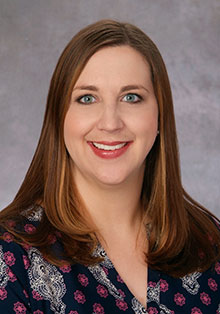2131-2140 of 3746 Results Found
Patient and Family Advisory Councils - Application
Our application process has been refined through years of experience working with our Patient and Family Advisors. How to Join: If you’re interested in joining any of our Patient Family Advisory Councils or Patient/ Parent Workgroups, please apply below. Each group has a range of
Condition
Fibrocystic Breast Changes What are some common fibrocystic breast changes? Fibrocystic breast changes are symptoms you may feel in your breasts right before your period. Your breasts may feel lumpy, swollen, or sore. This is a very common condition. It is not a disease. It is

Condition
Diagnosis of Cystic Fibrosis How is cystic fibrosis diagnosed? Newborns are screened for cystic fibrosis (CF) as part of each state's newborn screening program. If the results are positive, it does not mean your baby has cystic fibrosis. More tests are done as described below. In

CME Session
NSGR - Neuropsychological Functioning in Children - Aimee Hammer, PhD
Presenter: Aimee Hammer, PhD Neuropsychologist Barrow Neurological Institute at Phoenix Children’s Learning Objectives: Describe common types of craniosynostosis. Discuss the neurodevelopmental outcomes of syndromic and non-syndromic craniosynostosis in children. Describe
Condition
Signs of Pregnancy/The Pregnancy Test What are the signs of pregnancy? The signs of pregnancy vary from woman to woman. Usually, the most obvious sign is when a woman has a missed period. But some women continue to have bleeding even while pregnant. The following are the most
Service
The Voiding Improvement Clinic is the first voiding dysfunction clinic in Arizona, directed by pediatric urologists. Our goal is to provide the highest quality pediatric urological care to our patients in an environment that feels secure and comforting to children, their families
Meet Your Team
Please direct any questions to one of the departments below, based on your child's age: For children younger than 4 years old, please contact the Developmental Pediatrics program at 602-933-2327. For children 4 years up to 7 years old, please contact the Psychology program at 602
Conditions We Treat
A number of conditions can lead to pulmonary hypertension. Some babies are born with narrowed pulmonary arteries. In other children and adults, pulmonary hypertension can develop over time as a result of other health conditions, such as: Congenital (present at birth) heart
